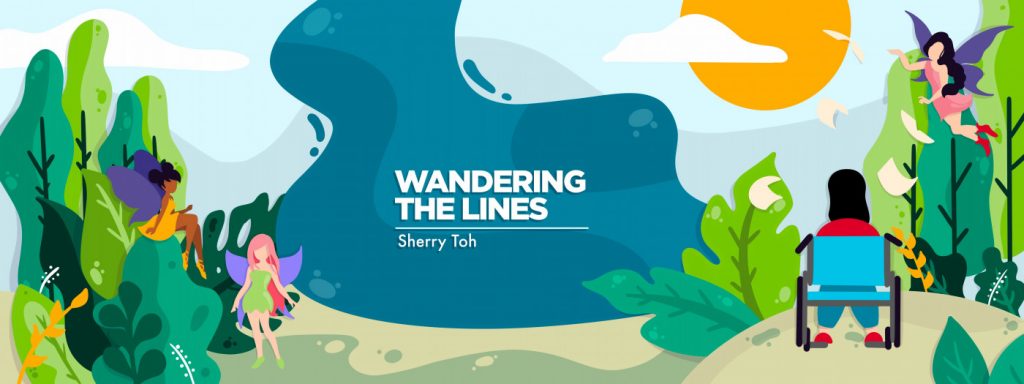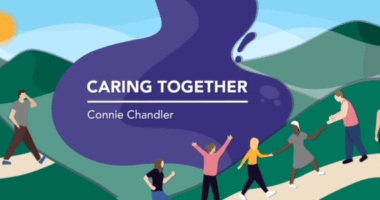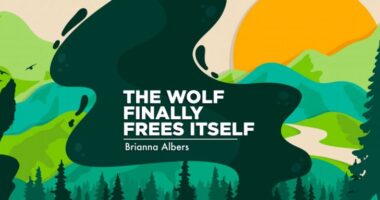My Love Is My Pride in a World That Doesn’t Always Accept Me


This Pride Month, I recalled an old friend from England telling me, “If anyone thinks being gay or bi is a choice or a lifestyle, they’re probably not straight.”
It’s a broad statement, one I believed then, but not anymore. In the years since I’ve heard it, I’ve known people who identify as straight, but have nevertheless experienced surface-level attraction to someone of their gender. For them, acknowledging the attraction was indeed a choice; it was as simple as deciding whether a bottle of Coke looked better than a glass of lemonade.
However, my friend’s statement encapsulated what it was like to question one’s sexuality for many people in the mid-2010s, including myself. She said it sometime in 2016 or 2017, only a year or two after the Supreme Court of the United States ruled in 2015 that same-sex couples have the fundamental right to marry.
The U.S. ruling sent shockwaves around the globe, with many nations also approving marriage rights. But in Singapore at the time, much of the public opinion was still that anyone attracted to the same sex or gender was choosing a “perverse” lifestyle.
For those whose queerness is intrinsic to who they are, more like a dietary necessity than a drink preference, the aforementioned opinion couldn’t be further from the truth or more harmful.
Take it from me — someone who thought my awe of female figures in popular media came merely from a stronger attachment to perspectives like my own and a desire to emulate beauty standards. It didn’t occur to me that I was attracted to some of them in a similar way I was attracted to male figures. I was taught the princess ends up with a prince, never another princess.
It wasn’t until age 13, after befriending other queer teens online, that I discovered the complexity of gender and sexuality. Suddenly, I had a better vocabulary to explain certain childhood experiences. No wonder I spent as many hours looking at photos of pop divas as I did at photos of Tobey Maguire after watching Sam Raimi’s Spider-Man trilogy. I was bisexual.
Realizing I wasn’t straight was both thrilling and terrifying. Thrilling in that I was learning more about myself and the humanity of queer folks, terrifying in that I feared what it might mean for my relationships with the people around me. That fear turned into anxiety and depressive episodes whenever a homophobic remark was made in my presence, with my feelings of powerlessness compounded by my disability.
The people who made the remarks didn’t know any better, but it still hurt. I’d spend nights crying, wishing I could be accepted as bi or that I could be nondisabled and run away if I was ever ostracized by my family for being queer.
As my queer friends and I grew apart because life was leading us in different directions, I did ask myself if I chose to be bi under their influence. But the deep longing I’d feel whenever I saw two women in love never faded — even when I began to suppress my bisexuality in order to cope with home and church life.
I thought, “If I’m still attracted to men, I’ll be OK if I never date a woman. It’s not like anyone would want me as a partner, no thanks to SMA, anyway.”
It took years of reflection and conversing with my English friend for me to truly embrace my bisexuality. She was so casual about the topic that it helped me see I could learn to be comfortable with my queerness first and let everything else fall into place later. I was around 18 then.
It’s hard to believe I’m now writing openly about my queerness for this column five years later, at age 23. It’s even harder to believe I have a partner, my dear Hannah, who taught me what unconditional love feels like by loving me as I am, SMA and all, though most wouldn’t look twice at anyone disabled; who doesn’t mind the long distance between Singapore and Texas, where she lives; and who gave me the strength to come out to my parents last year.
Much has changed in 10 years. Yet many things remain the same. Homosexuality is still criminalized in Singapore, and officials recently instituted a ban on adoption and surrogacy for same-sex couples. Over in the U.S., a dozen states have proposed bills banning discussions of gender identity or sexual orientation in some classrooms. These laws are embedded with the same queerphobic sentiments I internalized, and they can doubly harm queer, disabled people who are both struggling with their sexuality and living with caregivers opposed to accepting their queerness. Even though there’s nothing “perverse” about us.
As a queer person, all I want is this: to live in a world where no one is afraid because of who they are, in a life and home I’ve built with the girl I love.
Note: SMA News Today is strictly a news and information website about the disease. It does not provide medical advice, diagnosis, or treatment. This content is not intended to be a substitute for professional medical advice, diagnosis, or treatment. Always seek the advice of your physician or other qualified health provider with any questions you may have regarding a medical condition. Never disregard professional medical advice or delay in seeking it because of something you have read on this website. The opinions expressed in this column are not those of SMA News Today or its parent company, BioNews, and are intended to spark discussion about issues pertaining to spinal muscular atrophy.
The post My Love Is My Pride in a World That Doesn’t Always Accept Me appeared first on SMA News Today.




